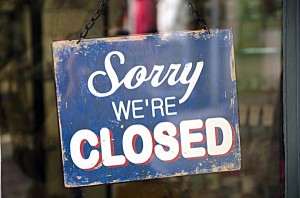Florida entrepreneur says local regulations make it tough to do business

By Marianela Toledo | Florida Watchdog
MIAMI — Local regulations are frustrating business owners, costing time and money.
Florida’s pro-business climate promises to streamline the process of doing business in the Sunshine State, but local governments continue to pile on the red tape.
THEY’RE NOT HELPING: Abraham Abrimovich says inspectors coming to his gas stations just want to harass him.
South Beach gas station owner Abraham Abramovich said local inspectors are a constant presence.
“Inspectors are very abusive with us business owners,” he said during an interview in his office. “They ask for nonsense things.”
Among other requests, he was ordered to replace metal drainage grates for ones made of concrete and add handicap parking — at a do-it-yourself car wash.
Nonsense or not, complying with local regulations can eat up a lot of time and money.
That became apparent when new fire regulations required building owners to install heavy metal boxes with keys stored inside to permit access in the case of an emergency.
Abramovich said he really wanted to comply with the law, but he later came to regret it.
“I called the number they gave me, no one responded. It took me time to get to the right person, but they really gave me the runaround,” he said. “I went to the first floor, the second, the third, and came back to the first floor, and again to the third, and that (was) just to find the person who sells the lock box.”
But the box he bought didn’t come with a key, which started the game of runaround all over again.
“No one responded, so I had to contact someone there who I knew to have someone else come by to open the box,” he said.
It didn’t end there.
Abramovich had to fill out paperwork for a license to install the box.
“I sent the paperwork and I had to send it all over again four days later because the procedure changed,” he said. “I paid $65 for the lockbox but I spent much more than that in time finding out how, when and where to buy it.”
Miami’s South Beach region isn’t the only area giving its business owners the royal runaround.
In Naranja, where Abremovich owns a car wash, things aren’t much better.
“I have a new ice machine in the car wash, but I am unable to use it because, five months later, we still have no water connection.”
In Homestead, where Abremovich has another car wash business, local authorities slapped his wrist for putting a poster in his shop window.
“An inspector came and notified me that I wasn’t allowed to have the sign,” he said. “If you look at the surrounding area you can see the amount of dirty businesses and overgrown lots, but they (inspectors) don’t go and check that out.”
State and local laws are two different worlds.
Abramovich said navigating state regulations is a breeze compared to the local rules.
“The state level is more efficient,” he said. “If you call them they will respond, while municipalities and counties don’t.”
Julio Estremera, a board member of the Southwest Chamber of Commerce, disputes what Abramovich says, claiming localities and the state largely work in tandem.
“State regulations are basically the same,” he said in a telephone interview. “They (local goverment) could add on an extra tax or a restriction, but all the information is available online.”
Estremera said it’s important that business owners do their due diligence before opening a business or signing a rental agreement.
“When a person is emotionally involved in a business decision, it is difficult for them to listen to advice that could help them avoid getting scammed,” he said. “They are so focused on their dream, and in their mind they won’t fail. So they usually enter into a business without a business plan. That is the right formula to fail.”
Abramovich said he doesn’t think his “dream” is the problem. He said local authorities just complicate things with too many regulations.
“I don’t have any problem with following the rules, but they need to tell me how to do it. When I call, no one responds,” he said.
“This (opening a business) was never easy, but has gotten harder over the time. If I had it all to do over again, I wouldn’t do it.”
Gov. Rick Scott’s pro-business reforms have had a big impact in the state. In 2012, he signed a bill that reduced the amount of time to approve certain permits — such as wetlands permits — from 90 days to 60, earning kudos from business groups.
Other reforms scaled back education requirements and protectionist policies that kept newcomers of professions like beauty specialists, accountants and real estate agents. Florida also gets high marks in the “best places” surveys and recently came in second as the best place to open a business, according to Chief Executive’s 2014 Best & Worst States for Business.
“Texas continues its 10-year historical position as the best state overall. But Florida, which ranks No. 2, is edging up and even overtaking Texas in its quality of living environment,” the survey says.
Many agree there’s still work to be done.
A 2012 survey by The National Federation of Independent Business found 45 percent of small businesses consider government regulation a “very serious” problem, a huge increase from the 2001 survey when the number was 17 percent.
NerdWallet.com rates cities according to worker abundance and quality, access to start up money, affordability, the local scene and how business-friendly they are. Only Tampa made it into the top 10 at number six.
Contact Marianela Toledo at Marianela.Toledo@FloridaWatchdog.org or on Twitter @mtoledoreporter.







